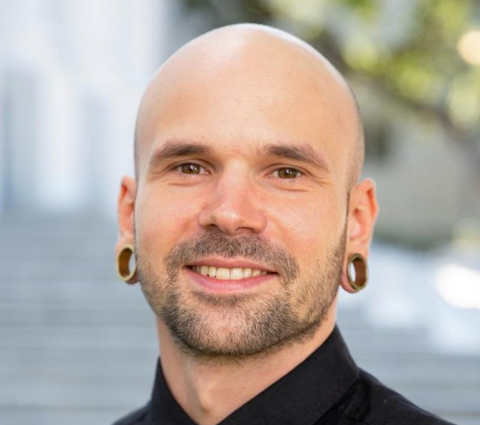Mar 20, 2024
Lipid Quality Control Beyond Membranes: FSP1 protects Lipid Droplets from Oxidative Damage
Lipids are crucial for cellular function but their susceptibility to damage such as peroxidation, can have adverse effects on cellular wellbeing. Thus, cells deploy diverse lipid quality control mechanisms to prevent the buildup of toxic oxidized lipids. Loss of lipid quality control, particularly on phospholipids in the plasma membrane, results in the catastrophic loss of membrane integrity leading to ferroptosis – a lipid peroxidation-dependent cell death. Beyond membranes, lipids can form lipid droplets, organelles that consist of hydrophobic triglycerides and cholesteryl esters.
Lipid droplets facilitate regulated lipid storage and release, thereby ensuring safe lipid metabolism in tissues such as adipose and liver, particularly under conditions of lipid overload. Dysregulation of lipid droplet levels is associated with pathological conditions such as obesity or fatty liver disease. Despite their importance, the existence of lipid quality control mechanisms that safeguard lipid droplets from damage remains uncertain as well as the consequences of lipid droplet damage on a cellular health.
We have identified the first lipid droplet quality control system executed by ferroptosis suppressor protein 1 (FSP1), a protein previously recognized as one of the essential membrane lipid quality control systems. Using chemical biology tools in genome-edited cancer cell lines, we found FSP1 bound to lipid droplets protects cells from lipid peroxidation-induced death. In vitro reconstitution biochemistry, combined with lipidomics and epilipidomics analyses, shows that lipid droplet resident FSP1 acts as a coenzyme Q10 reductase, locally generating the antioxidant ubiquinol, thus preventing lipid droplet damage. This marks the first description of a lipid droplet quality control
system, and we are currently investigating how this novel pathway is involved in the disease pathogenesis of dysregulated metabolically active tissues such as adipose tissue during obesity.
Bio: Mike Lange holds a master’s degree in molecular Life Science from the University of Erlangen-Nuremberg where he worked with Milos Filipovic on the mechanisms that protect proteins from oxidative damage. He received a PhD in Analytical Chemistry from the University of Leipzig under the supervision of Maria Fedorova where he developed untargeted lipidomics methods to uncover disease related lipidome alterations in human adipose tissue. Mike is currently a postdoctoral scholar at the University of California at Berkeley in the lab of James Olzmann where he studies the mechanistic basis of oxidative damage to lipids, specifically the role of lipid droplets in ferroptosis.
Mike is interested in unveiling the molecular mechanisms of lipid quality control and how lipid dysregulation and lipid damage are involved in the pathology of metabolic diseases. To this end, Mike develops untargeted and targeted LCMS methods for the analysis of lipids and integrates these with routine molecular biology and biochemistry workflows providing unprecedented detail on the molecular mechanisms of physiological and disease associated lipidome homeostasis. Mike is the chief organizer of the first San Francisco Bay Area Lipidomics meeting and the head of the Berkeley Postdoctoral Industry Exploration Program. He aims to establish his own independent research group to study mechanisms of how lipid damage is altering cellular function, how these pathways are related to the pathology of metabolic diseases and their potential to be targeted for
therapeutic applications.

